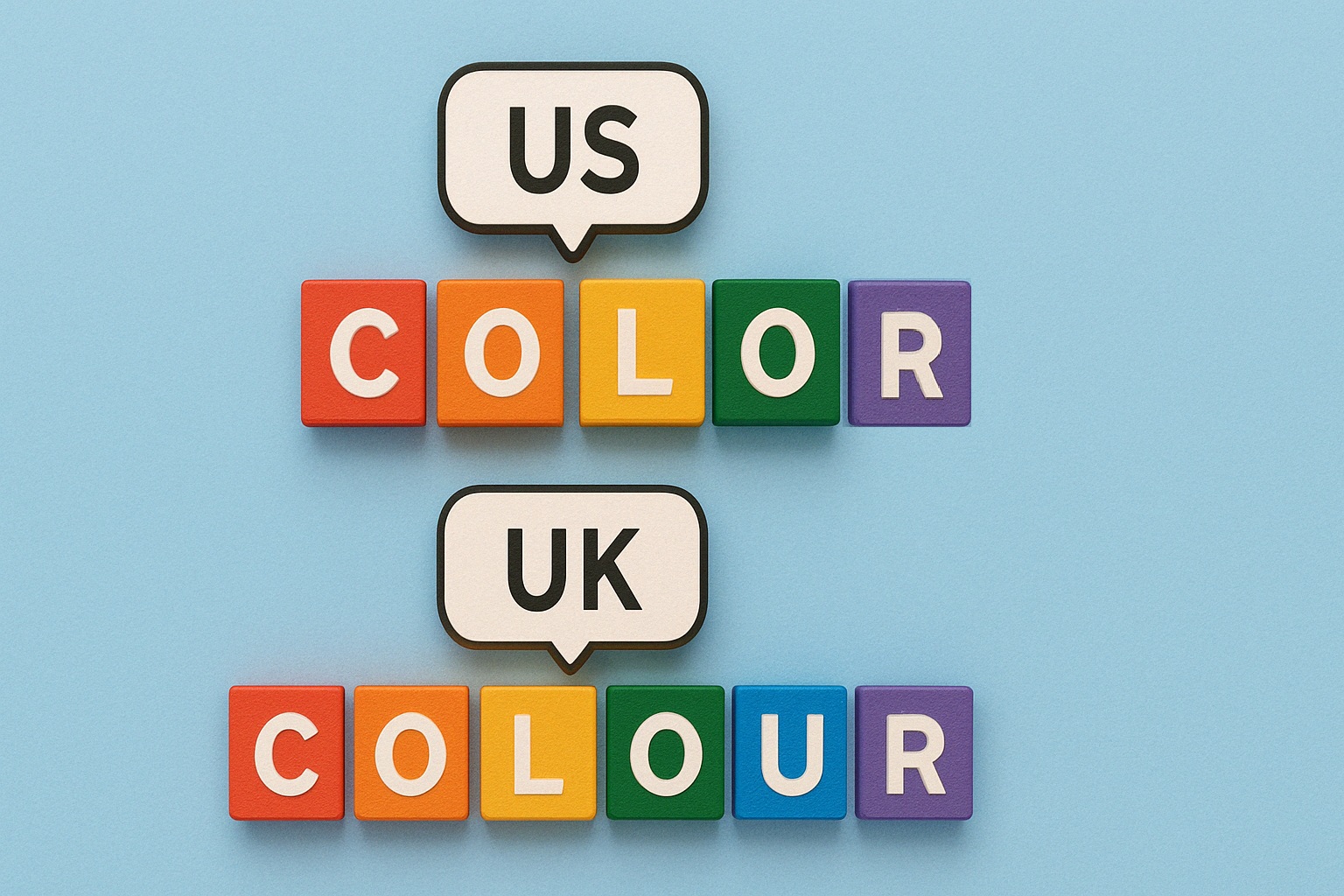
English is spoken worldwide and comes in many dialects, with British English and American English being two of the most widely recognized. While both share a common root, these two dialects differ in spelling, vocabulary, pronunciation, and even grammar. Whether you’re learning to speak the language or looking to improve your communication skills, recognizing these differences will prove very helpful.
Here are some key differences between British and American English to help you find your way across these linguistic landscapes.
1. Spelling Differences
The first among many distinguishing factors of British and American English is in their spellings. Many words have different spellings between British and American English, with the American versions often being simpler.
| British English | American English |
|---|---|
| Colour | Color |
| Centre | Center |
| Realise | Realize |
| Defence | Defense |
These differences can influence formal writing, so it’s important to determine which form your audience expects.
2. Vocabulary Variations
Some words differ completely depending on which form of English you’re using. This can lead to confusion, especially when traveling or working in international settings.
| British English | American English |
|---|---|
| Flat | Apartment |
| Lift | Elevator |
| Lorry | Truck |
| Biscuit | Cookie |
| Holiday | Vacation |
Pro Tip: If you’re unsure about a term, context usually helps clarify the meaning. For example, a “biscuit” in the UK is a sweet treat, whereas in the US, it’s a soft bread roll often served with gravy.
3. Pronunciation
Pronunciation differences can significantly influence how English sounds. British English is often associated with Received Pronunciation, while American English features a range of accents, with General American being the most widespread.
Key Pronunciation Differences
R Sound
British English often drops the “r” sound after vowels, while American English pronounces it clearly. For instance, “car” sounds like “cah” in British English but retains the “r” in American English.
Emphasis and Intonation
Words like advertisement and schedule are stressed differently depending on the variety of English you use.
4. Grammar Subtleties
The fundamentals of grammar remain the same, but there are subtle differences in usage.
Past Simple vs. Present Perfect
British English often uses the present perfect tense where American English prefers the past simple.
- British: I’ve just had lunch.
- American: I just had lunch.
Prepositions
British English uses “at the weekend,” while American English prefers “on the weekend.”
5. Idioms and Expressions
Cultural differences shine through in idiomatic expressions. British idioms might sound unfamiliar to Americans, and vice versa.
- British: Bob’s your uncle! (Meaning: Everything’s settled.)
- American: Hit the road! (Meaning: Leave or get going.)
6. Influence of Media and Globalization
Thanks to the global influence of Hollywood films and British television, people worldwide are exposed to both versions of English. This has led to some crossover, and terms like “awesome” (American) and “cheers” (British) are now widely understood.
How to Choose Which to Use
- Audience: If you’re writing or speaking to an American audience, opt for American English, and do the opposite for British audiences.
- Purpose: Academic and professional contexts may expect consistency in one variety.
- Consistency: Whichever variant you choose, stick with it to maintain clarity.
Conclusion
While British and American English have distinct differences, they remain variations of the same language and are mutually intelligible with a bit of patience and context. By learning these key distinctions, you’ll be better equipped to communicate effectively in any setting.
Whether you’re planning a trip, writing an essay, or simply interested in languages, understanding these differences is a great asset. So, why not elevate—perhaps we should say ‘take the elevator’—your linguistic skills and enjoy the richness of the English language!
Which form of English do you like most? Share with us in the comments section below!



